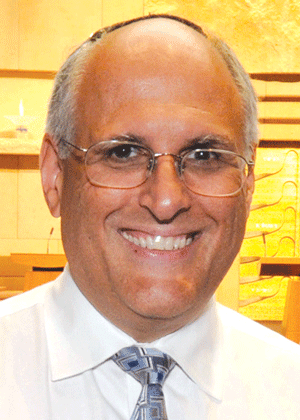Seder on March 6 will reflect on Passover themes that inform efforts to eradicate hunger and malnutrition
By ERIN ELLIOTT BRYAN / Community News Editor
“You are not obligated to finish the work [of perfecting the world], but neither are you allowed to desist from it.” — Pirke Avot 2:21
Four years ago, MAZON: A Jewish Response to Hunger and the Jewish Council for Public Affairs (JCPA) teamed up to create the Hunger Seder, which offered an opportunity to discuss the prevalence of hunger and malnutrition, and what Jews could do about it. Now, the Hunger Seder will be offered for the first time in Minnesota.
“Like many other seders on a theme, it uses the format of a Passover seder, which speaks to issues of justice and speaks to issues of hunger,” said Rabbi Harold Kravitz, of Adath Jeshurun Congregation, who also chairs MAZON’s national board of directors. “‘Let all who are hungry, let them come and eat’ is a pretty important statement at the beginning of the seder.”
The Hunger Seder will take place 7:30 p.m. Wednesday, March 6 at Mount Zion Temple, 1300 Summit Ave., St. Paul. Sponsored by MAZON, the MAZON Advocacy Project–Minnesota (MAP-MN) and the Jewish Community Relations Council of Minnesota and the Dakotas (JCRC), the seder is open to all.
The seder will also be an opportunity for MAP-MN’s partner organizations — including Adath Jeshurun, Beth Jacob Congregation, Jewish Community Action, JCRC, Jewish Family and Children’s Service of Minneapolis, Minnesota Rabbinical Association and Shir Tikvah Congregation — and supportive legislators to come together to reflect on Passover themes that inform efforts on issues relating to hunger.
“The bottom line is that everybody’s responsible. As individuals, we have responsibilities toward tzedaka (charity for the poor) and acts of chesed (kindness). As a community, we have an obligation; the congregation used to be involved in providing food and hunger projects,” Kravitz said, noting Adath Jeshurun’s long history of supporting STEP (St. Louis Park Emergency Program) and other hunger projects that provide direct service. “But we would also say that government has a role as well, and we have a duty to speak up about social needs and make sure that government works towards the things that we can’t seem to address as easily individually. That’s what government is for.”

As part of MAZON’s commitment to empower its partners to join in advocacy efforts, MAP-MN is one of eight pilot programs around the country that is working to advance the interests and dignity of those who struggle with food insecurity. In Minnesota, a team of 150 people — co-chaired by Judi Tennebaum and Scott Grayson — and 23 local partner organizations are working to close the lunch and achievement gaps in schools throughout the state.
According to MAZON, Minnesota students whose family incomes fall just over the amount that would qualify them for a free meal are frequently going without lunch — and some are being turned away or having their lunch dumped in the garbage if they can’t pay.
MAZON-sponsored legislation will remove the mandatory school lunch co-payment for up to 61,500 low-income Minnesotan children with family income between 131 and 185 percent of the federal poverty level, which is $42,263 for a family of four — essentially expanding the free lunch program to those students who qualify for reduced price lunches.
The cost to the state, which would make up the additional $0.40 co-payment per student for each meal, is estimated to be $3.545 million per year, for fiscal years 2014 and 2015.
“We’ve worked very hard to get bipartisan support, to get support in the metro area and out state, to try and build some alliances to get this done,” Kravitz said. “It’s been in the legislature for several years, in several forms. There was something called No Child Turned Away, but it didn’t succeed because it was an unfunded mandate.”
The legislation was introduced in the state House of Representatives (House File 336) by Rep. Ryan Winkler, DFL-Golden Valley. Co-authors are Reps. Jim Abeler, Yvonne Selcer, John Benson, Bob Gunther, Frank Hornstein, Steve Simon and Jason Isaacson. In the Senate, the bill (Senate File 146) was authored by Sen. Jeff Hayden, DFL-Minneapolis. Co-authors are Sens. Brandon Peterson, Dick Cohen, David Tomassoni and Karin Housley.
There is a parallel bill that puts forth the same proposal (HF 0031/SF 0038), which was introduced by Rep. Jerry Newton, DFL-Coon Rapids, and Sen. John Hoffman, DFL-Champlin. Though the bills must have hearings in both the House and Senate, any school nutrition bill that requires state funding will be included in a K-12 funding bill and will not be considered separately on the House or Senate floor.
MAP-MN is encouraging community members to contact their legislators to make them aware of HF 336 and SF 146. Interested persons are also welcome to join the MAP-MN team.
“This is a problem that has not been adequately addressed across the state. In some places it’s been addressed, but not adequately across the whole state when you have 20 percent of schools, is my understanding, that have turn-away policies to kids who are on subsidized lunch,” Kravitz said. “We think that it’s not only a Jewish right to speak up, but it’s a Jewish responsibility to speak up.”
***
To make a reservation for the Hunger Seder, contact Bryan Goltzman at: bryan@minndakjcrc.org.
For information about MAP-MN, contact Judi Tennebaum at: jktennebaum@comcast.net, Scott Grayson at: s.grayson@ieee.org or Rabbi Harold Kravitz at: hjkrav@gmail.com, or visit its Facebook page at: www.facebook.com/mapmn.
(American Jewish World, 3.1.13)




















Comments 0